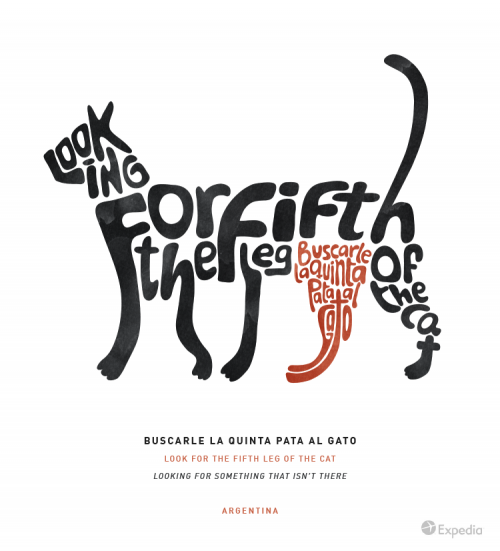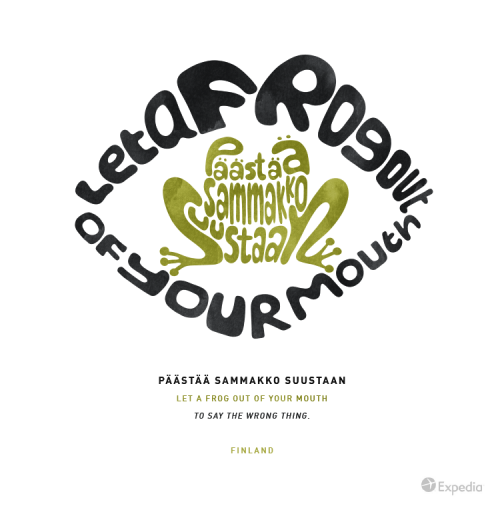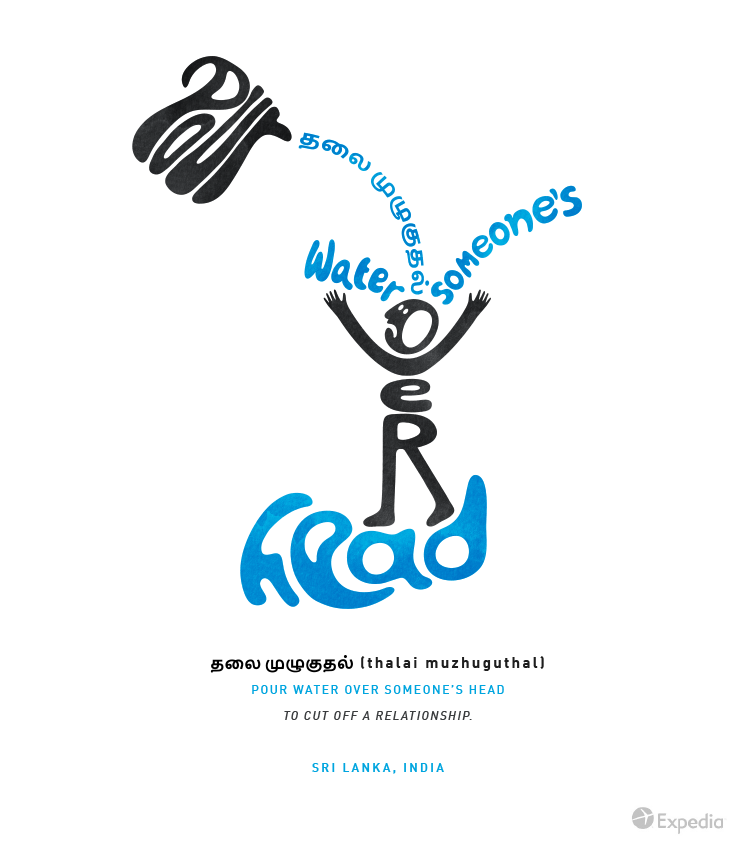Idioms are some of the most beautiful and creative parts of any language. Combining striking imagery with humorous phrasing, they are a fun way of making an observation on a situation. Not only that, they can also give us wonderful insight into different cultures and how they see the world.
To demonstrate just that, here is a run-through of some of the greatest examples of idioms from around the world that Expedia has collected and illustrated in this infographic:
Germany: Tomaten Auf Den Augen Haben
When you fail to fully grasp a situation or recognize what is happening right in front of you, then quite clearly you must have, “Tomatoes on your eyes”.
Argentina: Buscarle La Quinta Pata Al Gato
Plenty of people subscribe to conspiracy theories, ranging in reach from a personal to a national level. In Argentina, someone searching for what is not there is said to be, “Looking for the fifth leg of a cat”.
France: Les Carottes Sont Cuites
Sometimes we all just have to accept that something has happened and cannot be changed, what is done is done. In France, culinary fanatics as they are, this problem of not being able to turn back time is, “The carrots are cooked”.
Portugal: Pagar O Pato
Being the scapegoat for something you did not do can be intensely frustrating. For the Portuguese, taking the fall for someone else sees you, “Pay the duck”.
China: 对牛弹琴 (Duì Niú Tán Qín)
If you ever feel like your wasting your time with something for which you never get appreciated, well in Chinese there is the perfect expression, “It is like playing piano to a cow.”
Poland: Choinki Się Urwałaś?
When someone really does not have a clue what is going on and it seems like they have just appeared out of nowhere, the most obvious question to ask them (in Poland at least) is, “Did you fall from a Christmas tree?”
Canada: Chanter La Pomme
Flirting with someone is a romantic notion and the subject of much music and poetry. Which probably gave root to the French-Canadian expression that making a pass at someone means you are, “Singing the apple.”
Japan: 高嶺の花 (Takane No Hana)
Some things are more desirable because of how impossible they are to reach them. In Japanese, this concept of the unachievable is known as something being a, “Flower on a high peak”.
Finland: Päästää Sammakko Suusta
It is hard to think of a better description for those words that leap out of your mouth when you do not want them to than the Finnish, “Let a frog out of your mouth”.
Mexico: El Que Nace Pa’ Tamal, Del Cielo Le Caen Las Hojas
The belief in the natural order of life and that what is meant to be will happen in the end is neatly summed up in Mexico by the expression, “If you are meant to be a tamale, the leaves will fall from the tree.”
Italy: Un Cane In Chiesa
Not all arrivals to a party are as welcome as others, in fact some can be as unwelcome as a, “Dog in a church”, as an Italian might put it.
12. Sri Lanka: தலை முழுகுதல் (Thalai Muzhuguthal)
That feeling you give to someone when breaking up with them can be quite a shock and rightly described by Tamils as, “Pouring water over someone’s head”.



















